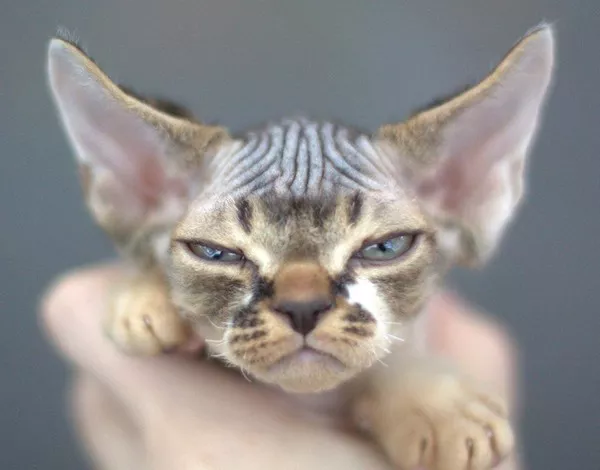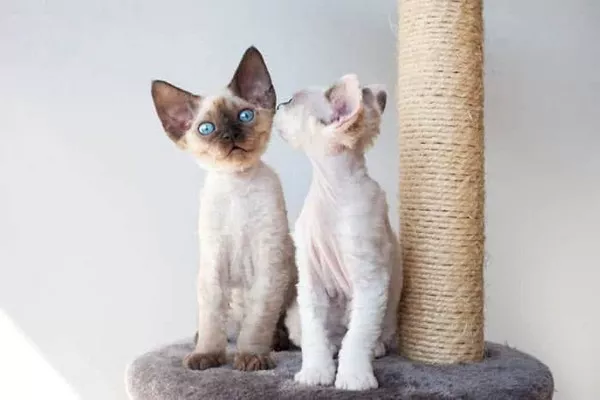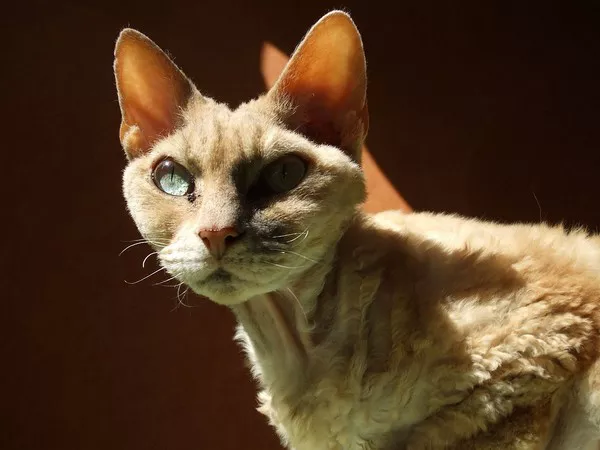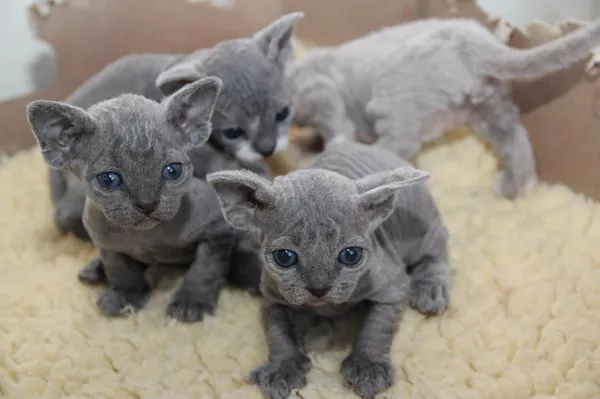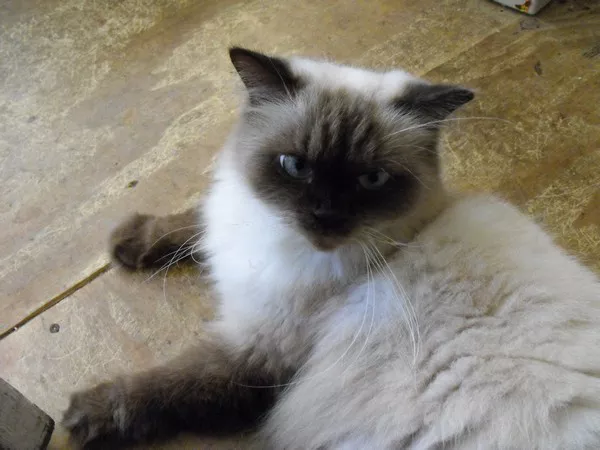The charming and sociable Devon Rex cat is celebrated for its distinctive appearance, playful demeanor, and, at times, vocal nature. While communication through meowing is a normal and essential part of feline behavior, excessive or incessant meowing can be a cause for concern for some owners. In this article, we explore the various reasons behind a Devon Rex cat’s meowing and delve into effective strategies to address and manage excessive vocalization. By understanding the motivations behind this behavior and implementing positive interventions, owners can foster a harmonious relationship with their Devon Rex while ensuring the well-being of their feline companion.
The Nature of Feline Communication
Before delving into ways to address excessive meowing in Devon Rex cats, it’s crucial to appreciate the natural form of feline communication. Cats, including the sociable and expressive Devon Rex, use meowing as a means of conveying a variety of messages. From greetings and expressions of affection to requests for attention or indicating hunger, meowing serves as a versatile and essential tool for feline communication. Recognizing the different types of meows and the associated contexts can provide valuable insights into a Devon Rex cat’s needs and desires.
Understanding the Devon Rex’s Vocal Nature
Devon Rex cats are known for their expressive vocalizations, and their meows can vary in pitch, tone, and intensity. While some Devons are naturally more talkative than others, excessive meowing may indicate an underlying issue that requires attention. It’s essential for owners to observe and differentiate between normal communication and patterns of meowing that may suggest discomfort, stress, or unmet needs.
Potential Causes of Excessive Meowing
Devon Rex cats may engage in excessive meowing for a variety of reasons, and understanding these potential causes is a crucial step in addressing the behavior. Some common factors that contribute to increased vocalization in cats, including Devons, may include:
1. Attention-Seeking: Devon Rex cats are social and thrive on human interaction. Excessive meowing may be a way for them to seek attention, affection, or playtime.
2. Hunger or Thirst: Meowing is a common way for cats to signal their hunger or thirst. If a Devon Rex feels hungry or is dissatisfied with its food, it may vocalize to communicate its needs.
3. Medical Issues: Pain, discomfort, or underlying health issues can lead to increased vocalization in cats. If a Devon Rex is meowing excessively, it’s essential to rule out any potential health concerns through a veterinary examination.
4. Environmental Changes: Devon Rex cats may be sensitive to changes in their environment. Moving to a new home, the introduction of new pets, or alterations in routine can trigger stress and result in increased vocalization.
5. Boredom or Lack of Stimulation: The playful nature of Devon Rex cats demands mental and physical stimulation. If a cat becomes bored or lacks sufficient environmental enrichment, it may resort to meowing to alleviate boredom.
6. Anxiety or Stress: Changes in the household, such as the absence of a family member, loud noises, or unfamiliar visitors, can cause anxiety or stress in Devon Rex cats, leading to excessive vocalization.
Addressing Excessive Meowing: Practical Strategies
Once the underlying causes of excessive meowing are identified, implementing practical strategies can help address the behavior and create a harmonious living environment for both the Devon Rex cat and its owner.
1. Provide Adequate Attention and Interaction: Devon Rex cats thrive on social interaction, and ensuring they receive sufficient attention can alleviate attention-seeking meows. Regular play sessions, cuddle time, and interactive toys can fulfill their need for companionship.
2. Establish a Consistent Feeding Routine: Creating a consistent feeding schedule helps address hunger-related meowing. Providing high-quality cat food in appropriate portions and at regular intervals satisfies their nutritional needs and minimizes excessive vocalization.
3. Address Medical Concerns: If a Devon Rex is meowing excessively, a visit to the veterinarian is essential to rule out any underlying health issues. Pain, discomfort, or medical conditions may manifest through changes in behavior, including increased vocalization.
4. Create a Stimulating Environment: Devon Rex cats are intelligent and playful, and they benefit from a stimulating environment. Enriching their surroundings with scratching posts, climbing structures, and interactive toys provides mental and physical stimulation, reducing boredom-related meowing.
5. Gradual Introductions and Environmental Stability: When introducing changes to the household, such as new pets or a move to a new home, gradual introductions and maintaining a stable environment can help alleviate stress. Providing familiar items, such as blankets or toys, can offer comfort during transitions.
6. Use Positive Reinforcement: Positive reinforcement is a powerful tool in modifying behavior. When a Devon Rex exhibits desirable behavior, such as being quiet or using a scratching post, rewarding them with treats, praise, or play reinforces these positive actions.
7. Implement Desensitization Techniques: For cats that meow due to anxiety or stress triggered by specific stimuli, gradual desensitization can be effective. This involves exposing the cat to the trigger in a controlled and positive manner, gradually reducing the association with stress and vocalization.
8. Consider Environmental Enrichment: Devon Rex cats may benefit from a variety of enrichment options, including puzzle feeders, window perches, and rotating toys. These additions to their environment can provide mental stimulation and help curb excessive meowing.
9. Consult with a Professional Behaviorist: In cases where excessive meowing persists despite efforts to address the behavior, consulting with a professional cat behaviorist or trainer may be beneficial. These experts can offer tailored advice and guidance based on the specific needs and circumstances of the individual cat.
10. Maintain Consistency: Consistency is key in addressing excessive meowing. Establishing a routine for feeding, playtime, and interaction, as well as maintaining a stable environment, helps create a sense of predictability for the Devon Rex cat, reducing stress-related vocalization.
11. Utilize Calming Products: For cats experiencing heightened stress or anxiety, pheromone diffusers, sprays, or calming collars may be effective in creating a calming environment. These products release synthetic pheromones that mimic a cat’s natural calming signals.
12. Create Quiet Spaces: Devon Rex cats may appreciate having quiet retreat spaces where they can relax and retreat from potential stressors. Providing cozy hiding spots or comfortable beds in quiet areas of the home can offer a sense of security.
Conclusion
In the intricate symphony of feline communication, the meows of a Devon Rex cat are a unique and expressive component. Understanding the motivations behind excessive meowing is crucial for owners seeking to address this behavior effectively. By recognizing the various factors that contribute to increased vocalization, from attention-seeking to underlying health concerns, owners can implement practical strategies to create a harmonious living environment for their Devon Rex companions.
The key lies in a holistic approach that combines attention to the cat’s physical and emotional needs, positive reinforcement, and environmental enrichment. Through consistent efforts, patience, and a deep understanding of their feline friends, owners can build a strong bond with their Devon Rex cats while minimizing excessive meowing. As the journey to harmonize the symphony of feline communication unfolds, the shared experiences and moments of connection between owner and cat become the true melody that defines the unique relationship with the charming and talkative Devon Rex.

